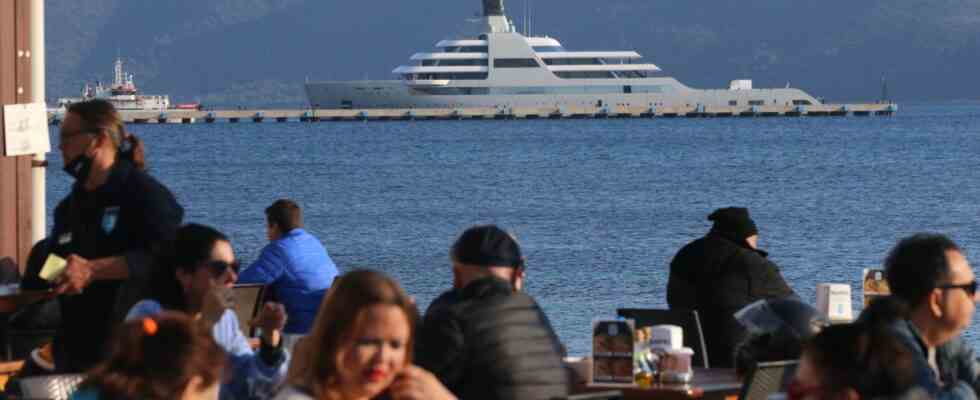As of: 04/09/2022 3:29 p.m
Since the most recent sanctions, many Russians have also ended up in Turkey. Turkish banks have long noticed how popular their accounts have become – and if you invest enough, you can also get a Turkish passport.
“Our Russian bank card should also work in Turkey – but it doesn’t,” complains 25-year-old Elisabeth. She is one of thousands of young Russians who have fled their country. Luckily for her, she had rubles in cash, which she had to exchange at a very poor rate. Others could bring euros or dollars. But they are not among the rich who also come to Turkey – or at least bring their money here.
The freezing of Russian oligarch assets “under panic among Russian citizens, which is why there is definitely a search for safe havens,” says former Akbank deputy chief Kerim Rota.
The panic he is talking about is more a concern of those who have not yet been sanctioned: because they can still freely dispose of their money. But if they too suddenly appear on a sanctions list, they may no longer have access to it. So they reallocate their money.
Ten billion? “Sounds like more than it is”
Turkish banks have long noticed how popular their accounts have become. But they will not accept large amounts, believes the former deputy head of the bank, Rota. By “large amounts” he means one-time transfers of more than 50 million US dollars, because then there is a suspicion of money laundering.
“There’s a greater likelihood that there will be transfers of smaller amounts, a few million at a time,” he says. “I therefore assume that initially no amounts will flow into Turkey that would have any impact on Turkey, but could accumulate over time and perhaps reach a volume of ten to 15 billion US dollars.”
That sounds like more than it is, says Rota – measured against Turkey’s current gross domestic product of around $800 billion, the cash inflow of $10 or even $15 billion isn’t particularly significant.
And there shouldn’t be too much more, says Ussal Sahbaz, economics writer for the well-known newspaper Dünya: “So far around three billion dollars are said to have come in, that’s credible and realistic. Whether it will be more in the end, maybe up to 30 billion , is hardly foreseeable.”
Per property to the Turkish passport?
Sahbaz does not expect any particular effects on the Turkish economy either. Turkey is also not particularly inviting, but rather neutral.
He doesn’t see any attempts by Turkey to take advantage of the situation and, for example, move Istanbul forward more quickly as a new financial center – and he doesn’t see any real chances of doing so either: Istanbul can hardly compete with London, Frankfurt or Dubai at the moment.
On the other hand, capital refugees from London, for example, are likely to be under great pressure, says Sahbaz: “Of course it is difficult for some people to liquidate their assets now. Only if they have assets that are not fixed as real estate or other investments, i.e. money, gold, Gems, crypto money, can that be taken overseas.” But there are also more attractive addresses for this than Turkey. For example Dubai – because an Anglo-Saxon legal system is used there.
Nevertheless, the influx of the rich into Turkey is having an impact. Because they don’t just park their money in bank accounts, they buy real estate. This drives up the already rising prices. In addition, the Turkish passport is offered from an investment, i.e. purchase sum, of 250,000 US dollars. The experts believe that at least the oligarchs are not interested in that. For someone like the young Russian Elisabeth, that’s rather appealing. Not only does she not get her money in Russia – she also does not have $250,000.

